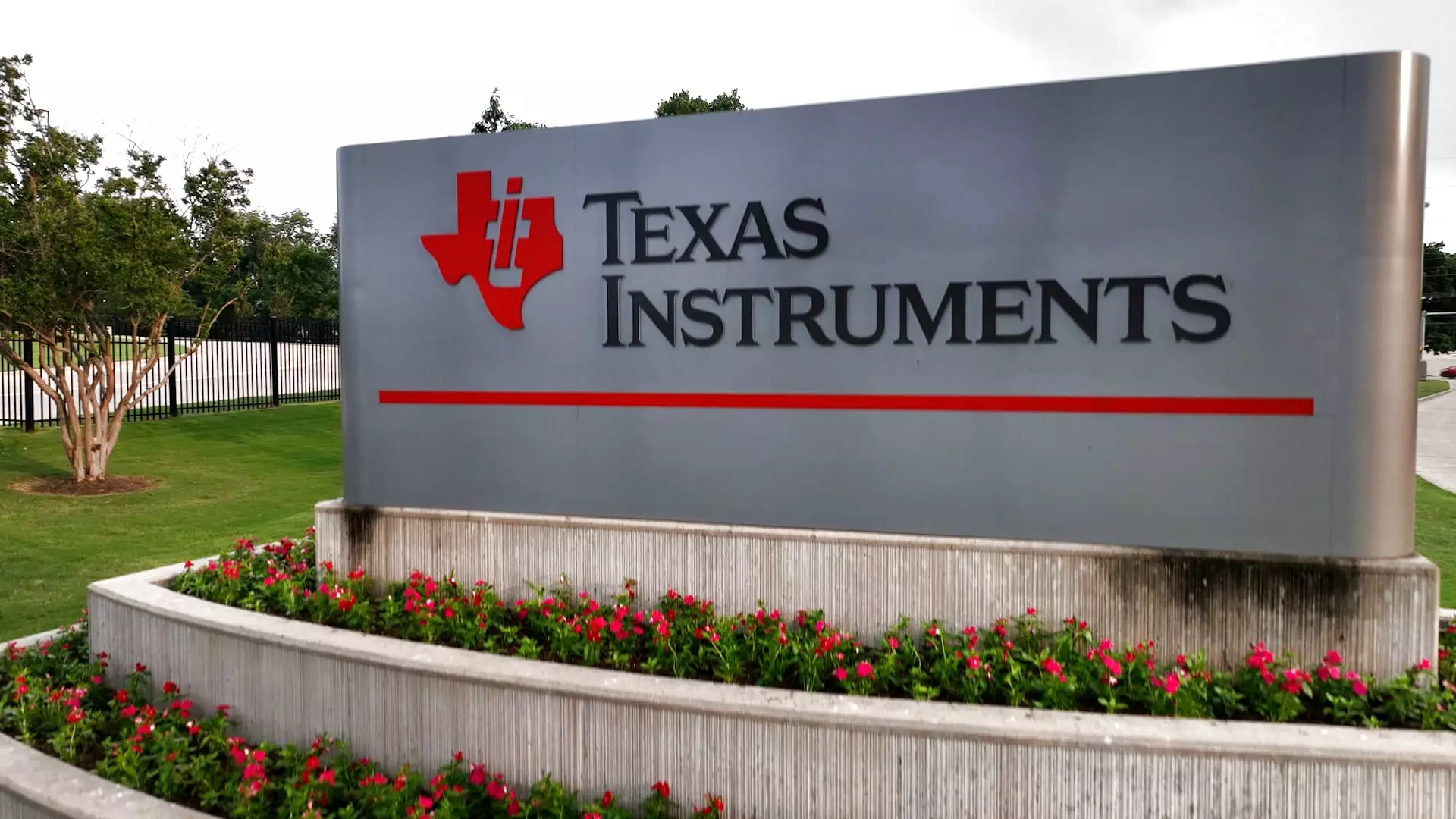Chipotle Mexican Grill has been a poster child for fast-casual dining success, but recent performance has unveiled troubling trends. The company’s first-quarter earnings fell short of revenue expectations, with a substantial 2% decrease in stock value following the news. For the first time since the pandemic, same-store sales dipped, indicating potential challenges in sustaining consumer interest in its offerings. The reported earnings per share of 29 cents slightly outperformed analysts’ consensus of 28 cents, yet analysts had predicted revenues of $2.95 billion. This begs the question: are consumers losing interest in Chipotle’s once-revered offerings? The lowered outlook for full-year same-store sales growth raises a red flag for investors.
Texas Instruments: A Bright Spot Amidst the Gloom
In contrast to Chipotle’s downward spiral, Texas Instruments emerged with remarkable resilience. The semiconductor behemoth reported a 4.8% jump in stock after revealing a commendable first-quarter earning of $1.28 per share, significantly surpassing the expected $1.07. With $4.07 billion in revenue, Texas Instruments not only beat expectations but also underscored the persistent demand for semiconductors in a tech-driven economy. This divergence in performance highlights that while some industries, like fast food, may struggle, the tech sector continues to thrive, evidencing a segmented recovery in various spheres of the economy.
Lam Research and the Semiconductor Surge
Like Texas Instruments, Lam Research has seen its fair share of gains, with shares rising approximately 4% due to robust fiscal performance. Posting adjusted earnings of $1.04 per share against anticipated earnings of $1.01 per share is no small feat. It speaks volumes about the vitality of the semiconductor market, which is notoriously cyclical yet remains essential in an increasingly digital world. If companies like Lam Research continue to excel, one cannot help but ponder the future balance in a market increasingly dependent on technology.
Knight-Swift Transportation: A Cautionary Tale
The transportation sector, however, is echoing more caution than confidence. Knight-Swift Transportation saw its shares decrease by 3% following ambiguous statements from management regarding trade policies. This type of uncertainty is damaging not just for the company’s immediate stock price but also for investor sentiment overall. Reported earnings projections for the next quarter have been widely varied, ranging from a paltry 30 to 38 cents per share against a consensus estimate of 42 cents. The company’s decision to abstain from providing guidance for the third quarter is especially alarming. In a time where clarity is invaluable, the absence of direction could promote investor anxiety, leading to long-term repercussions for the transportation sector.
ServiceNow: A Rare Gem Rising Above the Fray
Amidst the tumult, ServiceNow shone brightly, with its stock soaring by 9% after posting a robust first-quarter performance that beat forecasts. The company reported adjusted earnings of $4.04 per share, handily eclipsing the expectations of $3.83, while revenues of $3.09 billion resonated well beyond the forecasted $3.08 billion. In a time where uncertainty looms, the consistent success of workflow software services like ServiceNow delivers a critical lifeline for technology investors. It suggests that firms focusing on digital transformation remain well-positioned to not just endure, but excel.
Whirlpool and IBM: Contrasting Fortunes in Consumer Goods and Tech
The stories of Whirlpool and IBM highlight the polarizing realities between different sectors. While Whirlpool saw a modest gain of 4%, maintaining its full-year earnings guidance, IBM’s almost 5% drop illustrates the volatility in the tech landscape. Despite exceeding earnings expectations with $1.60 per share, IBM’s failure to meet revenue projections points to broader issues that could affect investor trust. In an era defined by rapid technological advancement, even established giants like IBM cannot afford to falter. Companies must evolve or risk losing their foothold in a competitive marketplace.
The trends in after-hours trading highlight the diverse indicators of consumer confidence, sector resilience, and the paramount need for companies to adapt in a world characterized by constant change.

